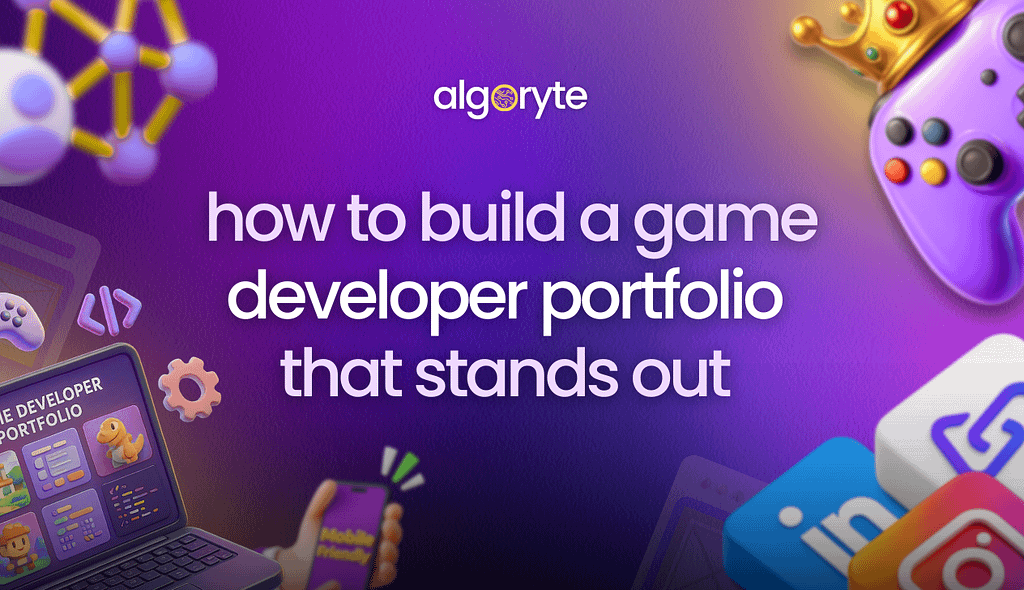
Introduction: Becoming a Game Developer King
In the ever-evolving game development industry, standing out is the difference between a career that thrives and one that stagnates. Whether you’re an aspiring indie developer or an experienced coder looking to join a top game development company, your portfolio is your ultimate weapon. Think of it as your declaration: “I am a game developer king, and this is my kingdom of skills and creations.”
A compelling game developer portfolio doesn’t just showcase your projects—it tells a story of your capabilities, creativity, and professional growth. At Algoryte, we guide developers to not only build a developer portfolio but also position themselves as leaders in the industry.
Why Your Portfolio Matters
Your portfolio is more than a collection of screenshots and links—it’s a narrative of your journey in game development services and expertise. Here’s why it’s essential:
- First Impressions Count: Recruiters and studios make quick judgments. A polished portfolio immediately signals professionalism.
- Demonstrates Your Skills: Employers want to see not just completed projects, but the depth of your understanding in coding, design, animation, and gameplay mechanics.
- Sets You Apart: In a competitive game development industry, your portfolio differentiates you from hundreds of other applicants.
Simply having a portfolio is not enough. You must showcase game development skills in a way that’s memorable, interactive, and strategically designed.
Steps to Build a Developer Portfolio
Creating a standout game developer portfolio involves several key steps:
1. Define Your Brand as a Developer
Before you begin curating projects, ask yourself:
- What type of games do I excel in?
- Am I a programmer, designer, artist, or all-rounder?
- How do I want to be perceived in the game development industry?
Once you answer these questions, your portfolio can reflect a coherent personal brand. Being a game developer king isn’t about ego—it’s about clarity and confidence in your niche.
2. Select Your Best Work
Quality always trumps quantity. Curate projects that highlight your strongest abilities in:
- Programming: AI behavior, multiplayer systems, or innovative mechanics.
- Art & Design: Character models, environments, or 2D/3D animations.
- Game Mechanics: Puzzle logic, player progression, or unique combat systems.
Include context for each project—explain your role, the tools used, challenges faced, and solutions implemented. This is crucial when you showcase game development skills to potential employers or clients.
3. Include Playable Demos
Interactive demos are the holy grail of game development services portfolios. Nothing communicates skill like letting someone play your game:
- Embed WebGL builds for browser-based testing.
- Share executable files for PC, Mac, or mobile platforms.
- Include video walkthroughs if demos aren’t feasible.
Remember, a demo isn’t just a game—it’s proof of your technical prowess, creativity, and ability to finish projects.
4. Highlight Tools and Technologies
Recruiters want developers familiar with industry-standard tools. Make sure your portfolio clearly showcases:
- Game engines: Unity, Unreal Engine, Godot, etc.
- Programming languages: C#, C++, Python, or scripting tools.
- Art & Design Tools: Blender, Photoshop, Maya, or Substance Painter.
By including these, you demonstrate readiness to join professional game development companies and game development services teams.
5. Tell the Story of Each Project
Every game in your portfolio should have a narrative:
- What was the project goal?
- What problem did you solve?
- How did you approach design and development?
- What did you learn from it?
A well-told story positions you as a thoughtful and strategic developer. It’s not enough to show games—you must also showcase game development skills in context.
6. Keep it Clean and Navigable
Presentation is key. Your portfolio should be:
- Visually appealing: Use consistent typography, color schemes, and layouts.
- Easy to navigate: Projects should be categorized by type or engine.
- Responsive: Ensure it looks perfect on desktops, tablets, and mobile devices.
Remember, your portfolio reflects your attention to detail—a quality every game development company values.
7. Include Testimonials and Metrics
Whenever possible, add validation to your portfolio:
- Testimonials: From collaborators, mentors, or clients.
- Metrics: Downloads, ratings, or engagement stats.
- Press or Awards: Features in magazines, blogs, or contests.
These elements reinforce credibility, showing that you’re not just a developer but a recognized contributor to the game development industry.
Leveraging Your Portfolio for Career Growth
Once your game developer portfolio is ready, it’s time to use it strategically:
- Networking: Share your portfolio on LinkedIn, Twitter, or game dev communities.
- Job Applications: Tailor your portfolio for each application, highlighting relevant projects.
- Freelance Opportunities: Use your portfolio as a tool to pitch to clients and game development services studios.
A strong portfolio can turn opportunities into concrete projects, establishing your reputation as a game developer king.
Common Mistakes to Avoid
Even experienced developers sometimes fall into pitfalls when creating portfolios:
- Overloading Projects: Too many projects can overwhelm viewers. Focus on the top 5–7.
- Ignoring Context: Screenshots without explanations fail to convey skill.
- Outdated Content: Always refresh your portfolio with new, relevant work.
- Poor Design: A messy layout distracts from your talent.
Avoiding these mistakes ensures your portfolio leaves a lasting, professional impression.
Conclusion: Stand Out in the Game Development Industry
A well-crafted game developer portfolio is your gateway to success in the competitive game development industry. By curating your best work, including interactive demos, telling engaging stories, and highlighting tools and achievements, you assert yourself as a game developer king.
At Algoryte, we champion developers who dare to showcase their skills boldly, strategically, and creatively. Whether you’re aiming to join a top game development company, offer freelance game development services, or simply establish yourself as a leader in the industry, your portfolio is your ultimate weapon. Build it with intention, polish it with precision, and watch opportunities come knocking.





